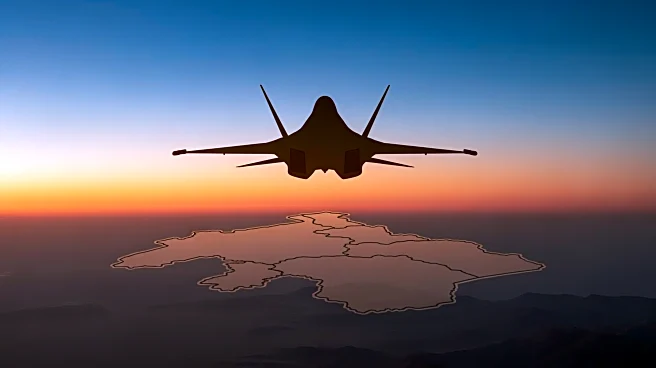What's Happening?
Boeing is aiming to secure more orders for its F-15 Eagle fighter jets in the Middle East, particularly from Saudi Arabia. The company is promoting the F-15EX model, which offers significant commonality with existing Saudi fleets, reducing infrastructure
and retraining needs. Boeing's efforts are part of a broader strategy to expand its presence in the region, which includes potential sales of collaborative combat aircraft and other defense platforms. The move comes as Saudi Arabia considers upgrading its aging fleet and diversifying its defense capabilities.
Why It's Important?
Boeing's focus on the Middle East reflects the growing demand for advanced military technology in the region. The potential sales to Saudi Arabia could enhance the country's air superiority and deterrence capabilities, impacting regional security dynamics. For Boeing, securing these deals would strengthen its market position and contribute to its global defense strategy. The expansion of defense capabilities in the Middle East also highlights the region's increasing role in global military affairs.
What's Next?
Boeing's efforts to secure F-15EX sales may face competition from other defense manufacturers, such as Dassault and Eurofighter. The outcome of these negotiations could influence future defense collaborations and partnerships in the region. Additionally, Boeing's interest in collaborative combat aircraft suggests a shift towards more integrated and advanced military systems, which could redefine defense strategies in the Middle East.
Beyond the Headlines
The push for advanced fighter jets in the Middle East raises questions about the long-term implications for regional stability and the arms race. It also highlights the role of defense companies in shaping geopolitical landscapes and the ethical considerations of military sales. As countries in the region seek to diversify their economies, partnerships with defense firms may play a crucial role in their development strategies.















